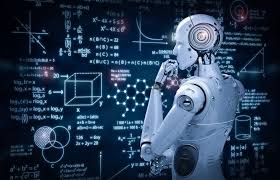Metacognition & Autodidacticism in AI/ML Engineering: A Case Study for Engineering Graduates
This white paper explores the critical intersection of metacognition, autodidacticism, and artificial intelligence (AI)/machine learning (ML) engineering, focusing on the unique challenges and opportunities faced by engineering graduates entering this rapidly evolving field.
1. Introduction
The field of AI/ML is characterized by rapid advancements and constant evolution.1 To thrive in this dynamic environment, engineers must possess not only technical expertise but also strong metacognitive and autodidactic skills. Metacognition, the ability to reflect on and regulate one's own thinking, is crucial for identifying knowledge gaps, adapting to new information, and effectively solving complex problems. Autodidacticism, the self-directed pursuit of knowledge, is essential for continuous learning and staying abreast of the latest advancements in this rapidly evolving field.
2. Challenges Faced by Engineering Graduates
- Information Overload: The sheer volume of information available in the AI/ML domain can be overwhelming.
- Rapid Technological Advancements: Keeping pace with the rapid evolution of AI/ML technologies and research requires continuous learning and adaptation.2
- The Need for Lifelong Learning: The skills and knowledge acquired during formal education may become obsolete quickly, necessitating continuous learning and skill development throughout one's career.
- Staying Competitive: The competitive nature of the AI/ML job market demands continuous improvement and the ability to adapt to new challenges and opportunities.3
3. The Role of Metacognition and Autodidacticism
- Metacognition for Effective Learning:
- Self-assessment: Identifying areas of strength and weakness in their AI/ML knowledge and skills.
- Goal setting: Defining clear learning objectives and creating effective learning plans.4
- Monitoring and evaluation: Tracking progress, identifying areas for improvement, and adjusting learning strategies accordingly.
- Problem-solving: Applying critical thinking and problem-solving skills to tackle complex AI/ML challenges.5
- Autodidacticism for Continuous Learning:
- Independent research: Actively seeking out new information through research papers, online courses, and industry publications.
- Experimentation and exploration: Engaging in hands-on projects, experimenting with new technologies, and exploring different AI/ML techniques.6
- Building a strong learning network: Connecting with other AI/ML professionals through online communities, conferences, and workshops.7
- Developing a growth mindset: Embracing challenges, learning from failures, and continuously striving for improvement.
4. Cultivating Metacognitive and Autodidactic Skills
- Developing a Learning Journal: Reflecting on learning experiences, identifying areas for improvement, and tracking progress.8
- Practicing Active Learning Techniques: Engaging with learning materials actively, asking questions, summarizing key concepts, and teaching others.9
- Building a Personalized Learning Plan: Creating a structured plan for continuous learning, including goals, timelines, and resources.10
- Seeking Feedback: Regularly seeking feedback from mentors, peers, and supervisors to identify areas for improvement.
- Embracing Challenges and Failures: Viewing challenges as learning opportunities and using failures as stepping stones for growth.
5. Tools and Technologies
- Online Learning Platforms: Coursera, edX, Udacity, Udemy, Google AI/ML courses11
- Research Databases: IEEE Xplore, arXiv, Google Scholar
- Open-Source Projects: Contributing to open-source AI/ML projects (e.g., TensorFlow, PyTorch)12
- Online Communities: Participating in online forums and communities (e.g., Stack Overflow, Reddit's r/MachineLearning)13
6. Case Study: Engineering Graduates in AI/ML
- Scenario: A recent engineering graduate with a strong foundation in computer science seeks to build a successful career in AI/ML.
- Challenges:
- Keeping up with the rapid pace of advancements in deep learning, natural language processing, and other AI/ML subfields.14
- Developing practical skills through hands-on projects and real-world applications.
- Building a strong professional network within the AI/ML community.
- Strategies:
- Focus on foundational concepts: Reinforce core mathematical and statistical concepts crucial for AI/ML.
- Engage in hands-on projects: Develop and deploy personal projects using popular AI/ML frameworks (TensorFlow, PyTorch).15
- Participate in online courses and workshops: Continuously update skills through online platforms and industry events.
- Build a strong professional network: Connect with other AI/ML professionals through online communities, conferences, and local meetups.16
- Embrace lifelong learning: Cultivate a growth mindset and prioritize continuous learning throughout their career.
7. Conclusion
Metacognition and autodidacticism are essential skills for success in the dynamic field of AI/ML engineering. By cultivating these skills, engineering graduates can navigate the complexities of this rapidly evolving field, adapt to new challenges, and achieve long-term career success.
Disclaimer: This white paper provides a general framework for cultivating metacognitive and autodidactic skills in AI/ML engineering. The specific strategies and approaches may vary depending on individual learning styles, career goals, and the evolving demands of the AI/ML field.
References:
- Metacognition in Learning: https://www.ncbi.nlm.nih.gov/pmc/articles/PMC3122536/
- Autodidacticism: Self-Directed Learning: https://en.wikipedia.org/wiki/Autodidacticism
- "Mindset: The New Psychology of Success" by Carol S. Dweck17
- "Learning How to Learn: How to Effortlessly Absorb Information and Become a Master Learner" by Barbara Oakley
This information is for general knowledge and informational purposes only.



